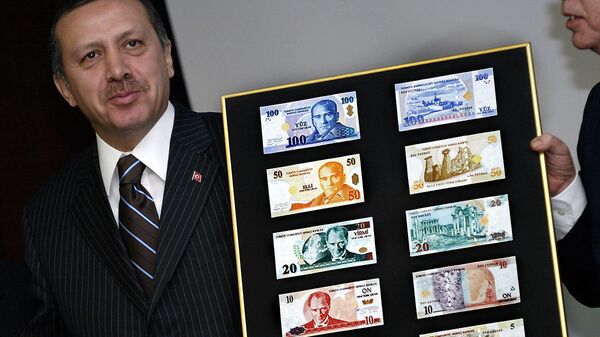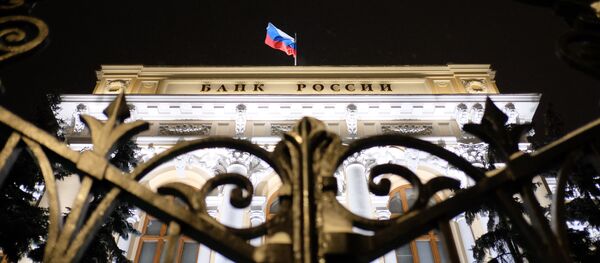While the Russian ruble fell to a low of 83.76 to the dollar on Thursday on the Moscow exchange, on Monday its value jumped back up to 78.7 rubles to the dollar as a result of a rise in oil prices. On Monday, Brent oil was trading at more than $32 per barrel, according to data from Marketwatch.
"The changing oil price is reshaping the balance of power between producers and consumers, but policy still counts. On that level, perhaps the lira is more worrisome than the ruble," author Richard Barley wrote, pointing out that while the Russian ruble has attracted attention for its recent depreciation, the Turkish lira "too, has flirted with record lows."
"Moreover, its depreciation has been relentless since the middle of 2013." Since then, it has decreased in value by more than one third, to 3.01 lira to the dollar.
Prospective investors are spooked by concerns about Turkey's domestic politics, and lack of monetary reform by its central bank, wrote Barley.
In contrast, Russia's central bank "has boosted credibility… by allowing the ruble to float, preserving foreign-exchange reserves, and by slamming interest rates higher."
The Russian economy "has managed to withstand a sudden stop in financing due to sanctions, a prospect that would cripple many emerging economies."
In December 2014 the Russian central bank raised its key interest rate to 17 percent to slow inflation. Since then it gradually decreased the interest rate, which in August 2015 reached 11 percent.
"A further decline in oil, and an associated slide in the ruble, will present the central bank with a new challenge: with Russia’s economy in recession, it will face a hard decision over whether to maintain the inflation-fighting credibility it has won or let it slip. Yet it is at least approaching the situation from a position of relative strength," wrote Barley.
In contrast to Russia's confidence-boosting monetary policy, Turkey's "central bank has stepped back from a promise to simplify and normalize its complex policies. This creates further doubts about its ability to hit an inflation target it has consistently missed."
The author also expresses concerns about the risks posed by the politics of Turkish President Recep Tayyip Erdogan, who continues to press for a new constitution that would give him greater powers.
"Turkey is still exposed to risks emanating from tighter US monetary policy," Barley wrote.
Turkey is one of the "fragile five" countries that are viewed as being vulnerable due to rising US interest rates, according to estimates from the US Federal Reserve, international banks and ratings agencies.
"A financing crunch would be painful as Turkey is clinging on to investment-grade ratings."






